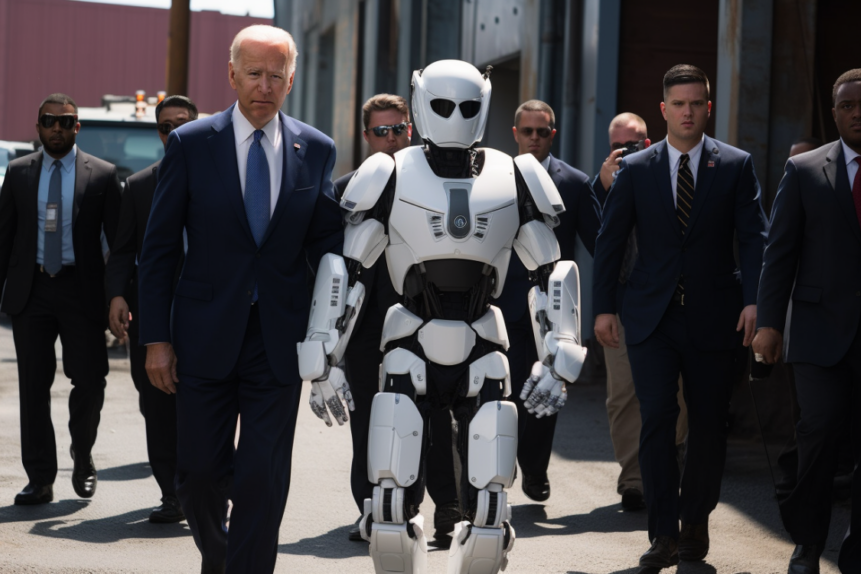Former Chairman of the Joint Chiefs of Staff Mark Milley and ex-Google CEO Eric Schmidt have expressed concerns about the U.S.’ readiness for future conflicts involving artificial intelligence.
What Happened: The battlefields of Ukraine are showcasing the rapid evolution of warfare, with thousands of drones and artificial intelligence systems being used to identify targets and avoid obstacles. These advancements are allowing Ukrainian forces to effectively strike Russian tanks and aircraft, according to the piece published by Foreign Affairs in early August.
“Unfortunately, this is a future for which the United States remains unprepared. Its troops are not fully ready to fight in an environment in which they rarely enjoy the element of surprise.” the piece states. “Its jets, ships, and tanks are not equipped to defend against an onslaught of drones. The military has not yet embraced artificial intelligence.”
Beyond Ukraine, new technologies are also transforming conflicts in Myanmar, Sudan, and Gaza. Autonomous drones and AI algorithms are increasingly being used by both insurgents and government forces, highlighting a significant shift in how wars are fought.
In the event of a Chinese amphibious assault, drones could also play a crucial role in Taiwan’s defense. While a full-scale attack on the island is unlikely in the coming years, Chinese President Xi Jinping has directed his military to be ready for an invasion of Taiwan by 2027.
“To stop such an attack, Taiwan and its allies would have to strike an enormous number of invading enemy assault craft within a very short time window,” the authors wrote.
The article suggests that the U.S. should consider purchasing from a broader range of companies than it traditionally does. In 2022, Lockheed Martin Corp., RTX Corp., General Dynamics Corp., Boeing Co., and Northrop Grumman Corp. accounted for over 30% of all Defense Department contract funds, while new weapons manufacturers received very little.
The authors argue that the U.S. military is not adequately prepared for these changes. They emphasize the need for the Pentagon to embrace AI and develop new strategies to counter drone attacks and other technological threats. The article stresses that without significant reforms, the U.S. risks losing its military edge.
In conclusion, Milley and Schmidt call for a comprehensive overhaul of the U.S. armed forces, including new procurement processes, better training for soldiers in AI and drone operations, and a more flexible command structure to adapt to the fast-paced nature of modern warfare.
“The United States must change and adapt, as well, and American officials must do so faster than their country’s adversaries. Washington won’t get it exactly right—but it must get it less wrong than its enemies,” the authors wrote.
Why It Matters: The concerns raised by Milley and Schmidt echo sentiments expressed by other experts. For instance, Marietje Schaake, International Policy Director at Stanford University’s Cyber Policy Center, has criticized Western governments for neglecting the governance of military AI use, despite the establishment of AI Safety Institutes in countries like the U.S., U.K., Japan, and Canada. Schaake highlighted the absence of oversight in military applications of AI, raising safety concerns.
Additionally, Palantir Technologies Inc. has seen a significant rise in its stock following its involvement in the U.S. Army’s Titan program, which focuses on AI-enabled vehicles. Palantir’s CTO, Shyam Sankar, emphasized that AI is fundamentally transforming warfare.
Amid these concerns, President Joe Biden has also taken steps to bolster the U.S.’s position in the AI race against China.
Read Next:
Image Via Shutterstock
Disclaimer: This content was partially produced with the help of AI tools and was reviewed and published by Benzinga editors.
Image generated using Midjourney
Market News and Data brought to you by Benzinga APIs
© 2024 Benzinga.com. Benzinga does not provide investment advice. All rights reserved.

